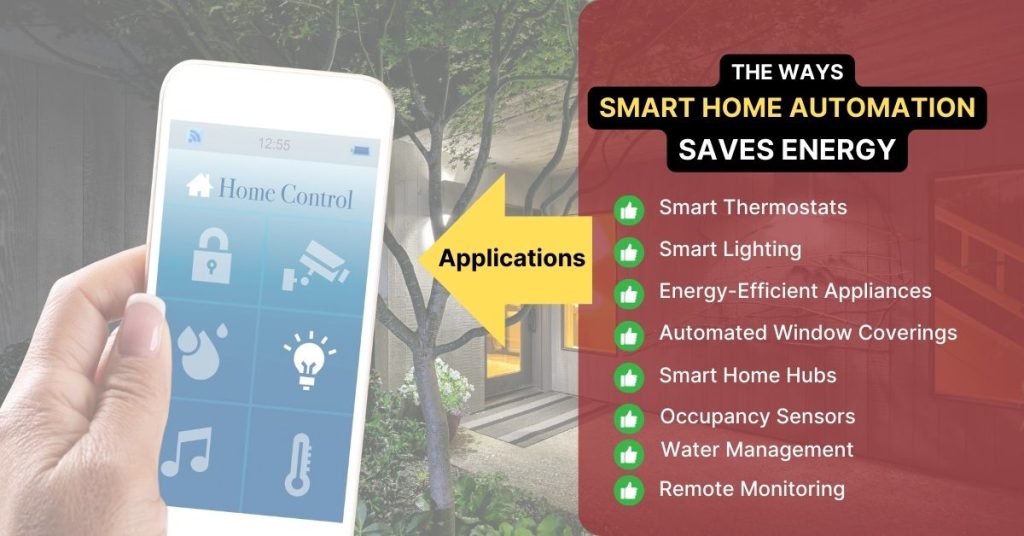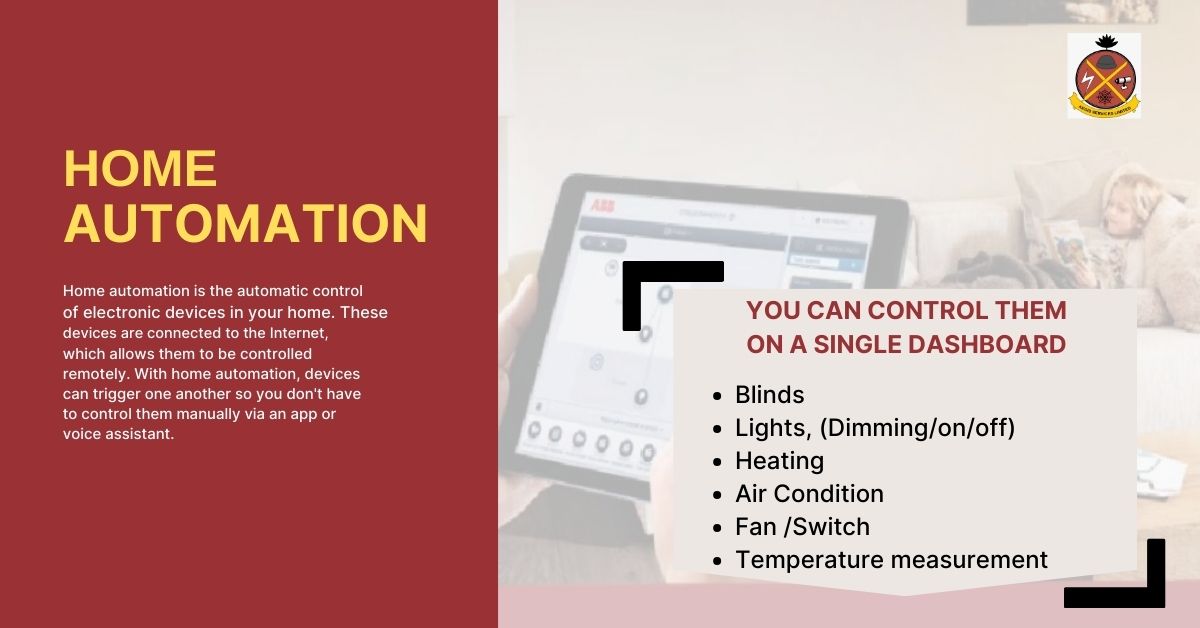As technology advances, we can use it to make our lives more convenient and efficient. One area where this is evident is in home automation. Smart home automation has become increasingly popular, allowing homeowners to control and monitor various aspects of their homes quickly.
One of the significant benefits of smart home automation is its ability to save energy. In this article, we will explore how smart home automation can help you efficiently save energy and reduce your carbon footprint.
Home Automation Applications
Home automation can contribute to energy savings by providing better control and efficiency over various systems within a household. Here’s how it works and some ways in which it can help save energy:
Smart Thermostats:
One of the most significant contributors to energy consumption in a home is heating and cooling. Smart thermostats learn your preferences and adjust the temperature based on your habits. They can also be controlled remotely, allowing you to optimize heating or cooling when you’re away.
Smart Lighting:
Home automation systems can integrate with intelligent lighting solutions. Controlling from mobile apps enables lighting levels, sets schedules, and adjusts brightness based on natural light conditions. Consequently, it helps to avoid unnecessary energy consumption from lights being left on when not needed.
Energy-Efficient Appliances:
Smart home systems can monitor and control the energy usage of various appliances. They can turn off devices when not in use, schedule energy-intensive tasks during off-peak hours, and provide insights into energy consumption patterns.

Automated Window Coverings:
Smart blinds or shades can be programmed to open and close based on the time of day or the amount of sunlight. This helps regulate the indoor temperature, reducing the need for heating or cooling.
Smart Home Hubs:
Centralized smart home hubs allow you to control multiple devices and systems from a single interface. This can include heating, lighting, and other appliances. This centralized control can lead to more effective energy management.
Occupancy Sensors:
Home automation systems often include occupancy sensors that detect when a room is empty. Lights, heating, and cooling systems can be adjusted automatically to conserve energy in unoccupied spaces.
Water Management:
Smart home systems can monitor water usage and detect leaks. They can shut off water supplies if a leak is detected, preventing wastage. Additionally, they can optimize irrigation systems based on weather conditions.
Remote Monitoring:
Many home automation systems offer remote monitoring through mobile apps. This allows homeowners to check and control energy usage even when they are not at home, promoting better energy management.
Wrapping Up:
By integrating these technologies, home automation systems create a more responsive and efficient living environment, reducing energy waste and contributing to overall energy savings. It’s important to note that the effectiveness of energy savings depends on how well the homeowners are configured and utilizing these systems.
Is home automation worth it?
Whether or not home automation is worth it depends on your individual needs and preferences. Home automation can offer a lot of benefits, such as convenience, energy savings, and increased security. However, it also comes with a cost and may require some initial investment in terms of money and time to set up. It’s essential to weigh the pros and cons and decide if home automation aligns with your lifestyle and budget.
Is home automation safe?
You can consider home automation to be safe if proper precautions are taken. It is important to use secure and reputable smart devices, change default passwords, and keep software up to date to minimize the risk of hacking. Additionally, it’s important to only give access to trusted individuals and to regularly monitor the system for any unusual activity. Overall, with proper precautions, home automation can provide convenience and security to homeowners.








Leave A Comment